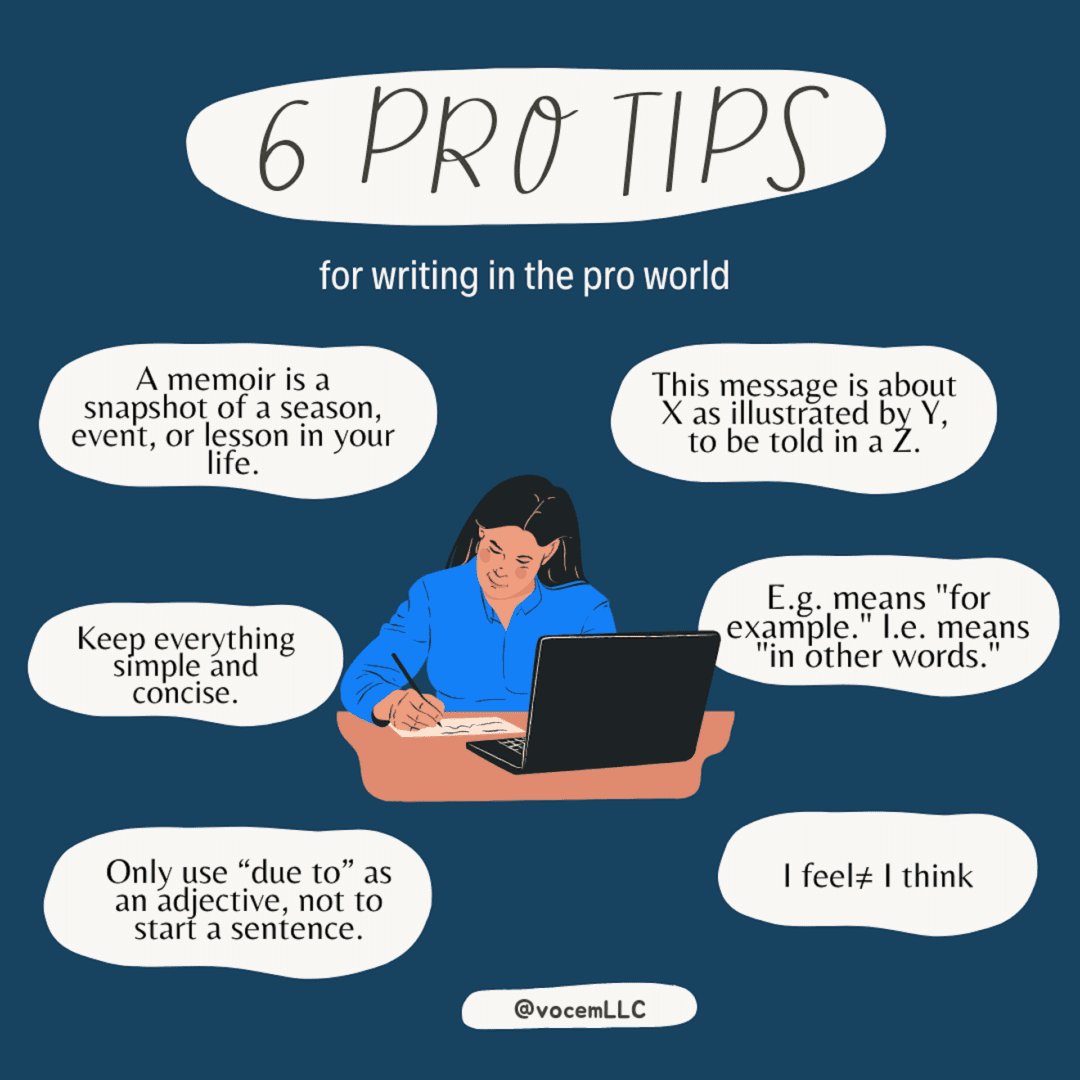
Enlightened Leadership Blog | Pro Tips for Writing Well in Your Pro World | April 2024
No matter what kind of entrepreneur you are and no matter the industry in which you work, the chances you write often are high. More than high. I’ll bet you spend a portion of every day writing. Your daily written communication might be as simple as an email, or it might be you’re writing your memoir or a business book. Or any range of work in between. It’s important you know a few things and be able to employ a half-dozen or more tricks to help you in your writing endeavors.
6 Pro Tips
As a professional editor and writer, I offer weekly-ish pro writing tips for those who follow my business account on social media. These pro tips help people write more clearly and concisely in any professional or personal capacity. Here are a half-dozen of those tricks you can use today.
1. Storytelling & Messaging – In any place you offer a story or message, consider this formula: “This story/message is about X as illustrated by Y, to be told in a Z.” If you are crafting a business email, you’d say, “This message is about new hire orientation as illustrated by the timeline HR has developed, told in an email.” If you are writing a memoir, you’d say, “This story is about how I moved from immigrant to CEO as illustrated by snapshots of the struggles I faced and overcame, to be told in a book.” Once you have the X, Y, and Z, you have your what and how, and the rest comes easier.
2. What Is a Memoir – It’s common to confuse biographies with memoirs. Biographies (or autobiographies if written themselves) are chronological accounts of people’s lives from birth to the present (or death). They move in a predictable, historically accurate fashion and are often filled with facts. Biographies answer, “What did someone do with their life?” Memoirs are glimpses into a part of someone’s life and focus on an event, a season, a struggle, or a defined story. They are like reels that may or may not move chronologically. They read like fiction, having a well-developed character (you), a plot, a climactic realization, and falling action. Memoirs are stories that answer, “Why did you do that and what did you learn?” The journeys are more relevant than the destinations.
3. Simplicity Wins the Day – Simple and concise writing is the best type of writing. Unless you are crafting poetry, readers of most types of writing, from emails to articles and how-to manuals to epic sagas, understand and retain simple and concise writing over flowery, complicated prose. Simplifying doesn’t mean “dumbing down.” Just like in college basketball, having a deep bench of strong vocabulary words is beneficial. Being concise doesn’t mean leaving out critical information. It means you leave more meaning on the page or screen because readers aren’t trying to weed through the extra stuff. Two ways to do this are to remove unnecessary words, especially adverbs—particularly those ending in -ly—and reduce repetition.
4. E.g. vs. I.e. –Following my advice above, let’s make this simple. E.g. means “for example.” I.e. means “in other words.” The correct application is . . . I like many flavors of ice cream (e.g., mint chocolate chip, toasted coconut, fudge swirl, and more). Or . . . I like many flavors of ice cream (i.e., all of them).
5. Due to vs. Because of – Coming from the healthcare industry, I understand the propensity to use “due to” in our writing. We think it sounds more professional. However, it’s usually used incorrectly. “Because of” explains the reason for something. “Due to” explains the cause. It’s correct to say, “We canceled the trip because of the blizzard.” Or it’s okay to say, “The cancelation of the trip was due to the blizzard.”If we revisit pro-tip #3 above, you’ll see why I’d edit this second option and use the sentence with “because of.” It’s simpler.
6. I feel vs. I think – This gets at another common error in writing and speaking. Feeling refers to emotions. Thinking refers to thoughts, opinions, and ideas. It would be incorrect to say, “I feel we should change those numbers.” The correct version is, “I think we should change those numbers.” You feel anxious because the numbers might be wrong.
There you have them: six pro tips to get you through your work week.
Write on, fellow entrepreneurs.
By Cortney Donelson

